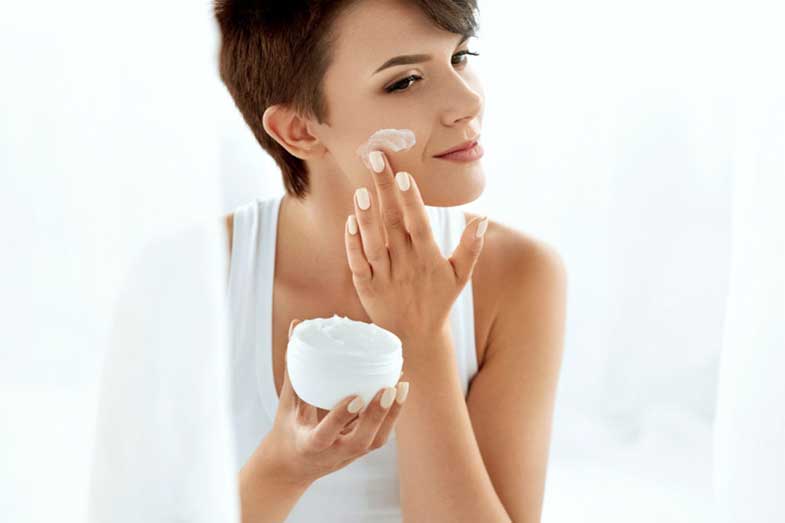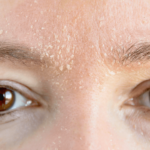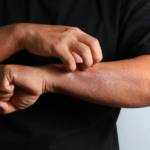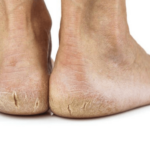Our face is a common spot for irritated skin. It can be frustrating trying to find ways to soothe the irritation, especially if you have tried different treatments without success. How to soothe irritated skin on face?
To help soothe your irritated skin on the face, dermatologists recommend the following tips:
- Apply Apple Cider Vinegar
- Make an Oatmeal Facial Wash
- Use a Moisturizer
- Apply a Clay Mask
- Apply Calamine Lotion
- Use Baking Soda with Coconut Oil
- Apply Aloe Vera Gel
- Apply Extra-Virgin Olive Oil
- Apply Coriander
- Apply Calendula Oil
- Apply Chamomile Tea
- Sleep
These treatments are all effective in soothing the irritated, itchy skin on the face. I recommend you try one at a time for a few days to fully test out each method and find the one that works best for you.
Read on to learn more about how to soothe irritated skin on the face and how to avoid any future irritation.
How to Soothe Irritated Skin on Face?
To help soothe your irritated skin, the following methods are suggested by dermatologists:
1. Apply Apple Cider Vinegar
Apply apple cider vinegar over the affected area with a cotton ball. Apple cider vinegar has acetic acid properties that can help reverse skin irritation. It is antifungal and antibacterial, so over time can minimize irritation and inflammation.
ACV works for some but may not work for you. If your skin gets irritated with pure ACV, you can dilute it with water. If irritation persists, stop using the apple cider vinegar.
2. Make an Oatmeal Facial Wash
Make an oatmeal facial wash by mixing a cup of ground oatmeal and water to make a creamy paste. Apply this facial wash to your skin and let it sit for 20 minutes. Rinse it either with lukewarm water or milk, and you’ll notice you have softer and more supple skin.
Oatmeal provides soothing and anti-inflammatory features. It is effective in treating skin rashes, chickenpox, eczema, allergies, and sunburn.
3. Use a Moisturizer
Use a moisturizer on the affected area 2-3 times a day. Moisturizers will help lock in moisture and prevent the skin from drying. If you have sensitive skin, it is especially important to use a hypoallergenic and fragrance-free moisturizer.
There are many moisturizers made specifically for sensitive skin. Other moisturizers have ingredients that can further irritate your skin, including many anti-acne moisturizers.
4. Apply a Clay Mask
Apply a clay mask but do not wait for it to dry or flake before you rinse off. While the clay mask is still wet on your face, it consumes all the minerals. As the mask starts to dry and contract, it triggers blood flow. And when it is totally dry, it drags out the moisture from the top part of your skin, causing irritation.
So use a clay mask to soothe irritated skin on the face, but not leave the clay mask on for too long. It is recommended to wash off the clay mask when the color gets lighter, but the clay is still a little sticky.
5. Apply Calamine Lotion
Apply calamine lotion on the affected area but wash your face first with lukewarm water. You can use calamine lotion overnight to do more than soothe irritated skin on the face. You can also use it to treat or dry out a pimple. If you have very sensitive skin, you can apply it less often, perhaps just in the evening every other day.
Dr. Anjali Mahto, dermatologist and author of The Skincare Bible, says, “to calm irritated skin on the face, I apply calamine lotion.” She also adds, “Calamine lotion is anti-inflammatory and reduces the irritation and redness on the face.”
6. Use Baking Soda with Coconut Oil
Use Baking Soda With Coconut Oil to treat skin rashes and to soothe itchy and irritated skin on your face. Just add one part of baking soda to three parts water and add coconut oil, then apply on the irritated skin every day. Make sure not to leave the baking soda on your face for too long as it can cause more irritation.
7. Apply Aloe Vera Gel
Apply aloe vera gel to soothe and calm your skin. The anti-inflammatory, anti-bacterial, and anti-fungal features of aloe vera are all great for soothing skin on your face as well as for treating skin rashes and other skin problems.
Aloe vera gel can be found at many department stores, on its own, or as an ingredient in many skin care products.
8. Apply Extra-virgin Olive Oil
Apply extra-virgin olive oil by rubbing it on the affected area a couple of times a day until the irritation heals. You can also mix the olive oil with turmeric powder or honey and apply it to the affected area twice a day for 3 to 4 days. Turmeric powder has antibacterial and anti-inflammatory features that can help soothe irritated and itchy skin.
Other than helping in soothing skin irritation, extra-virgin olive oil can also help heal and stimulate skin renewal since it contains vitamin E and antioxidants. Aside from EVOO, castor oil, cod liver oil, and vitamin E oil can also help treat skin irritation naturally.
9. Apply Coriander
Make a paste of coriander leaves by grinding them in a food processor or in a mortar and pestle. Take a small bit of the paste and apply it to the affected area 1-2 times a day for a couple of days. The anti-inflammatory, anti-irritant, and anti-septic features of coriander are great for soothing irritated skin on the face.
You can also boil 1 or 2 teaspoons of coriander seeds and drink it once a day until the skin problem heals. Coriander juice is also effective.
10. Apply Calendula Oil
Apply calendula oil on the irritated skin and leave it for a couple of hours. Do this at least 2 times a day until you see some healing or improvement. You can also put some calendula oil in your bath water and leave it for 15 minutes. Your bath will be very soothing and will help soothe your irritated skin.
Because of calendula’s anti-fungal, anti-inflammatory, anti-viral, and anti-bacterial features, this plant is also efficient in treating eczema, bruises, ulcers, dry skin, and wounds.
Dr. Samer Jaber at Washington Square Dermatology says, “Oils protect the skin’s acid mantle and protect it from irritation.” He recommends using a lighter oil for your face, such as calendula, rosehip, argan, marula, or jojoba. These lighter oils are less likely to clog pores.
11. Apply Chamomile
Apply chamomile on the affected area by placing a cloth soaked in the chamomile tea on your irritated face. Do this 2-3 times daily. Another option is to add some drops of chamomile in 2 teaspoons of coconut oil or other oils I’ve mentioned earlier.
Just like calendula, chamomile also has anti-inflammatory, anti-irritant, anti-fungal, anti-bacterial, and anti-viral features that are great for treating rashes and other skin problems.
12. Sleep
Sleep is a must to minimize and prevent irritated skin. Getting sufficient sleep can help soothe the skin irritation on your face. If you don’t get the right amount of sleep, you are stressing out your body. If your body is stressed, it will discharge cortisol that leads to irritation and inflammation, including acne breakouts. So, get yourself a good night’s sleep!
If you are using your fingers in treating your irritated skin or face, make sure to wash your hands properly so as not to transfer any dirt or germs that may cause more irritation on the affected area.
If your skin is red and irritated, see the below video by Dr. Rosalyn George, a dermatologist at Wilmington Dermatology Center in Wilmington, North Carolina. Dr. George goes into detail on how to soothe irritated skin on face and body:
How to Prevent Your Face from Becoming Irritated

It is also best to take additional steps to prevent or avoid your skin from becoming even more irritated. The following methods are recommended by dermatologists to avoid getting irritated skin on the face:
Fragrance-Free products are most recommended, especially for those with sensitive skin. Take note also that unscented products still have chemicals that can irritate your skin, so go for “fragrance-free” products specifically.
Use humidifiers and stay at a neutral temperature. Extreme weather can dry up your skin which can cause itching and flaking. Use a humidifier during dry and winter seasons. Humidifiers will add moisture and avert the air from becoming too dry. They are excellent for keeping your skin moist and hydrated through the drier, colder months.
Apply moisturizer on your skin or face. If you are using a medicated topical cream or ointment, you can apply your medication to the affected area before putting on the moisturizer.
You can also apply creams, lotions, and oils that are effective in cooling down the irritation and itchiness of your skin. Effective oils are mentioned above.
Lukewarm baths are recommended but don’t make the water too hot, and you must limit your shower or soaking in the tub for just 10 minutes only.
Have a stress-free life. Stress can add itchiness to your already itchy skin. So relax and let worries and stress float on by. Meditation and yoga, along with deep breathing, are very effective at managing stress.
Avoid scratching the affected area. If you can’t help scratch the itchy skin, then it is best to cover it. You can also wear clean gloves to avoid transferring dirt or germs to the skin.
Know the cause of itching and avoid it. It can be your type of clothing, exposure to chemicals you use daily such as hair products, perfume, cleaning products, or soap and shampoo you use.
The room you are staying in may also be dusty, or the bedsheet and pillowcase you are using haven’t been washed for a number of weeks. Ensure to keep your place clean and wash your bedding more often.
Avoid harsh cleansers. You may be using the wrong skin care product for your skin type, or you’re irritating your skin with harsh facial exfoliants. A visit to a dermatologist is important if you are experiencing very red and irritated itchy skin.
If itchiness and irritation still persist, ask your dermatologist about your concern. There can be an underlying factor why the irritation won’t heal.
Conclusion – How to Soothe Irritated Skin on Face?
How to soothe irritated skin on face? To help soothe your irritated skin on the face, these effective tips are recommended by dermatologists:
- Apply Apple Cider Vinegar
- Make an Oatmeal Facial Wash
- Use a Moisturizer
- Apply a Clay Mask
- Apply Calamine Lotion
- Use Baking Soda With Coconut Oil
- Apply Aloe Vera Gel
- Apply Extra-Virgin Olive Oil
- Apply Coriander
- Apply Calendula Oil
- Apply Chamomile Tea
- Sleep
Remember, do not ever forget to wash your hands if you are using your fingers in treating the irritated skin on your face. This way, you won’t transfer any dirt or germs that may cause more irritation to the affected area. Better yet, only use products with a pump dispenser, and avoid jar products.
There can be a number of reasons why you have irritated skin. It can be because of environmental factors, allergies, genetic factors, poor facial care habits, and much more.
Whatever the reason is, if itchiness and irritation still persist, it is best to consult your dermatologist about your concern. There can be an underlying factor why the irritation won’t heal, and they can better assess and diagnose a proper treatment for your skin.



![Say Goodbye To Wrinkles On The Face [Easy Tips to Prevent Them] wrinkles on face](https://skincaregeeks.com/wp-content/uploads/2023/04/wrinkles-on-face-1-2-150x150.png)





